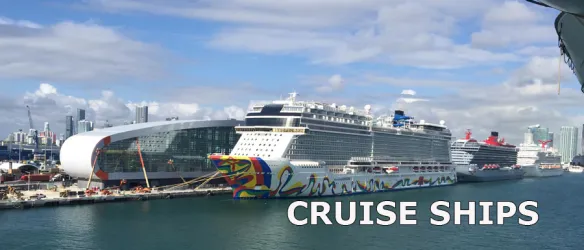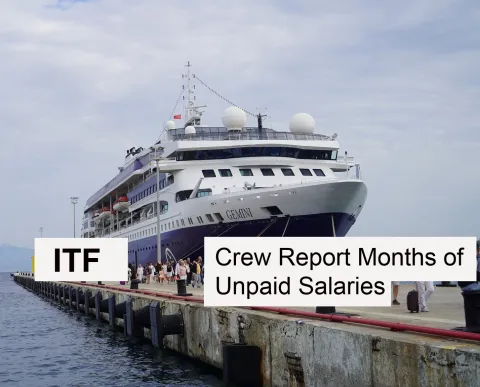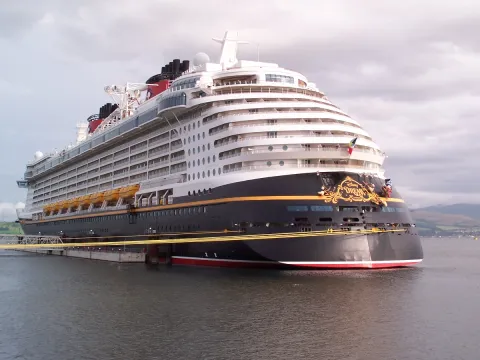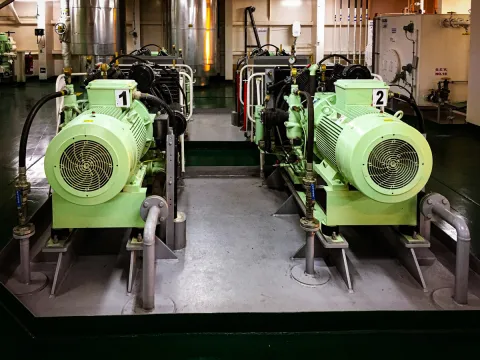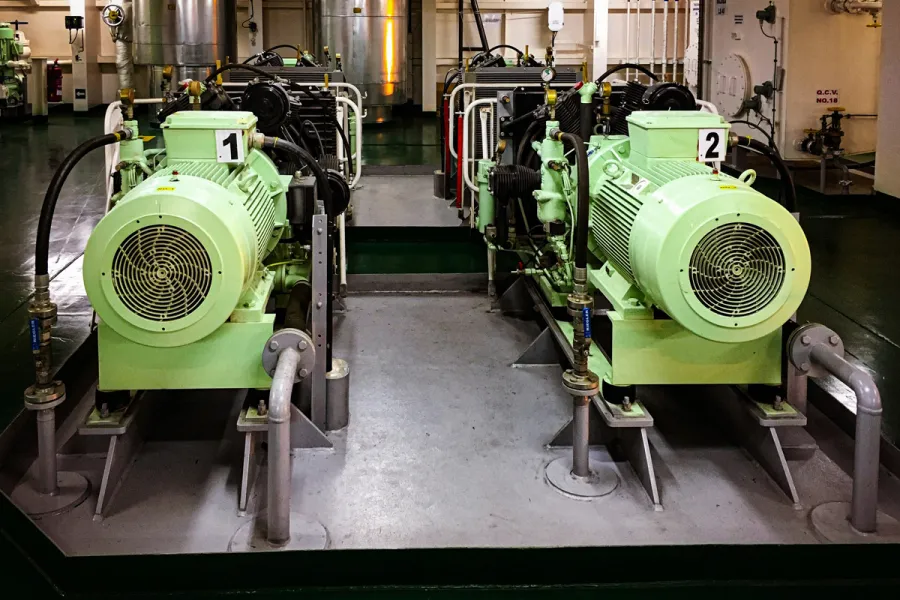
When you picture a cruise ship career, you probably see hospitality crews or deck officers, and the guest experience tends to dominate that picture. Look closer: modern ships are intricate, high-tech ecosystems at the forefront of engineering, environmental science, and IT, which together create a surprisingly wide range of STEM roles for people who want challenging, real-world work at sea today.
A career at sea offers ambitious STEM professionals accelerated growth, blending hands-on technical work with the high-level management and logistical skills required for leadership. For those pursuing advanced degrees, like an MBA, while exploring such a demanding career path, an MBA writing service can be a practical tool for managing academic deadlines. Exploring these high-stakes, high-reward roles could be your next big adventure.
1. Marine Engineers and Naval Architects
Every cruise ship runs on propulsion, power generation, and a maze of mechanical and electrical systems at its core. Marine Engineers keep those complex machines alive and reliable day after day. Their remit covers operation, maintenance, and repair of massive diesel engines and gas turbines, along with sophisticated HVAC, freshwater generators, and onboard waste-treatment plants.
Naval Architects design and build the vessel, model its stability, and verify seaworthiness, efficiency, and compliance with international safety rules. The work blends physics, mathematics, and advanced materials science to deliver floating infrastructure that performs in real oceans.
Careers in these roles demand constant problem-solving and hands-on use of advanced engineering in a fast-changing, real-world environment.
2. Environmental Officers and Scientists
Cruise lines now put environmental stewardship front and center, pushed by regulations and by guest expectations. That shift creates essential roles for Environmental Officers and scientists trained in environmental engineering, chemistry, biology, or marine science. These specialists manage every aspect of a ship’s environmental performance from day to day.
They oversee waste and recycling systems, confirm compliance with maritime pollution rules, monitor air and water emissions, and implement sustainable practices across departments. Typical tasks include water-quality testing, hazardous-materials control, and crew training on environmental protocols and safe handling. The result is protection for marine ecosystems and a cruise industry that operates transparently and responsibly.
3. IT Professionals and Network Engineers
A ship relies on connected systems for operations and guest services. IT teams maintain satellite links, onboard servers, point-of-sale terminals, access controls, and entertainment platforms. Network Engineers manage routing, segmentation, and cybersecurity hardening so essential systems remain available. They troubleshoot software and hardware with limited spares and limited shore support, then keep thorough records for audits and upgrades.
The job involves constraints that feel different from land. Satellite latency affects design choices, so caching and bandwidth policies matter. Cabling must endure vibration and salt air. Guest Wi-Fi needs to be reliable without undermining operations. The best results come from careful planning, clear runbooks, and fast diagnostics. Strong communication with every department is part of the role.
4. Electro-Technical Officers (ETOs)
Electro-Technical Officers specialize in electrical and electronic systems across the ship. They look after main power generation and distribution, switchboards, converters, navigation electronics, communication equipment, automation controls, and show technology. Their goal is a stable, safe, and predictable electrical backbone. When faults appear, they isolate the problem, restore service, and document the fix.
The role blends theory and practice. ETOs apply power electronics, control systems, and signal analysis. They read schematics, test sensors, and calibrate instruments. They coordinate with engineers, bridge officers, and hotel technicians so work happens with minimal disruption. Preventive maintenance matters. So do spare-part strategies, safety permits, and clear handovers between shifts.
5. Automation and Control Engineers
Automation expands every year. Control Engineers design, program, and maintain systems that regulate engines, steering, climate, cargo handling, and safety devices. They work with PLCs and distributed control systems, then connect data to dashboards and alarms so crews can act quickly. The job blends computer science with electrical and mechanical knowledge, which keeps systems aligned and efficient.
Projects can include tuning fuel controls, optimizing chiller loads, improving cabin climate profiles, or upgrading sensors for better fault detection. Engineers draft change plans, test in stages, and train crews on new logic. Results show up in smoother operations, lower energy use, and cleaner reporting. The work rewards patience, documentation, and a steady approach to risk.
6. Medical Technicians and Biomedical Engineers
Modern ships carry medical centers with labs and diagnostic tools. Medical Technicians and Biomedical Engineers keep those systems ready. Tasks include maintaining analyzers, imaging equipment, ventilators, monitors, and emergency devices. They manage calibration schedules, verify results, and coordinate with medical officers so care remains reliable at sea.
The role suits people who like technical work in a clinical setting. It calls for attention to detail, strong documentation, and quick response during emergencies. The job also involves training others in correct device use and supporting drills. For those who enjoy healthcare technology without a traditional hospital routine, this path offers a distinctive mix.
Conclusion
Cruise operations offer a wide, often overlooked path for STEM talent. Beyond classic maritime jobs, ships now require expertise in engineering, sustainability, networks, automation, medical technology, and analytics. A contract at sea lets you apply technical skills in changing conditions, solve unusual problems, and build experience that stands out. For people who enjoy science and technology and who want a career with visible impact, the ocean functions like a moving laboratory. Your work can support safer voyages, cleaner operations, and better experiences for crews and guests around the world.
Crew Insights
Articles and experiences shared by crew members working on cruise ship. Find out more about ship life at sea together with tips and advices for first time crew members and cruise oldtimers.



